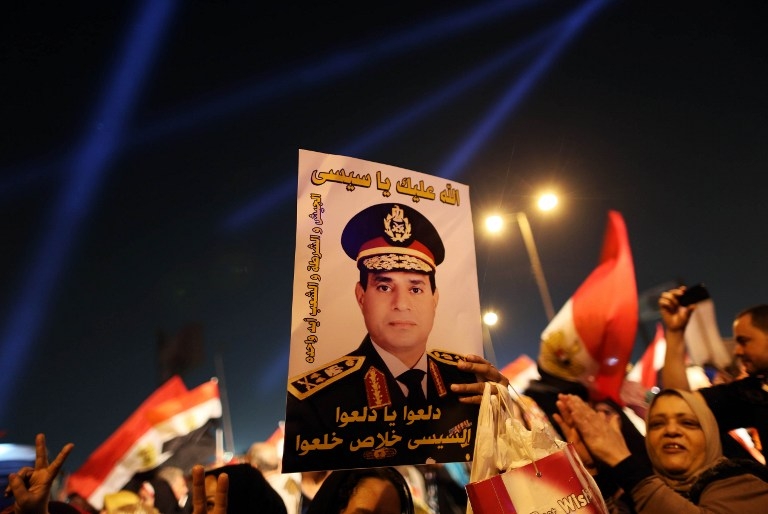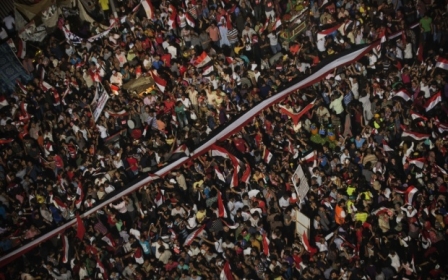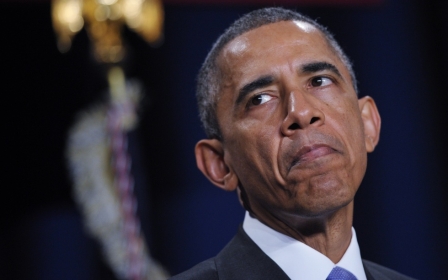'Stability' hampers national advancement of Arab states

The Arab regime’s fetish for stability is expected to carry on in the year ahead. Egyptian President Abdel Fattah al-Sisi’s "stability" and Syria’s Bashar al-Assad’s "stability" are not expected to be used any less than last year. While the term is used in different contexts, it has consistent trans-national implications. Post-revolution political constellation exposed structural failures in Arab states. With mass mobilisation and uprisings sweeping the region, non-state groups expanded and grew exponentially. Some non-state movements are grassroots, others have been strategically formed with the support of regional powers.
Some non-state actors, such as the Houthis in Yemen, al-Nusra Front in Syria, Hezbollah in Lebanon, Ansar Beit al-Maqdis in Egypt, Islamic State (IS), etc., have mutual interests with states, and thus, secure foreign funds and play proxy roles; becoming existential threats to other states.
This made the relations between states and non-states complex and uncertain. As non-state groups grew, their political autonomy - or their agency as policymakers rather than absolute proxies - grew as well. Consequently, the tensions between states and non-state groups grew as their interests clashed.
Having said that, the term stability is not only used by Arab states to refer to the clash with non-state actors and proxies. It is also, inevitably, a policy of pacifying and disciplining societies from their religious beliefs and traditions to their public assembly. The quest for stability by Arab regimes is a quest for pre-Arab Spring national and regional control. Instead of restructuring failing states, local elites are stubbornly sticking to corrupt bureaucracies and containing the culture of protest; be it detaining activists or banning non-state groups.
Equating stability with revolutionary success
In Tunisia, a subtle campaign that abused anti-Islamist discourse and polarised Tunisian society made 88-year-old Beji Caid Essebsi president, and 80-year-old Mohammed Ennaceur speaker of parliament. Both men belong to the Nidaa Tounes party, an anti-Islamist party that relies heavily on the resources and lobbies of disbanded Ben Ali’s party. Both men were top figures in Ben Ali’s regime as well. And even the most prominent Islamists – such as Ennahda’s Rashid Ghannouchi, consent to the rule of the old guard, as long as the "democratic" game is limited to the current polarisation between Islamists and the secularist old guard. Yet, there is certainly public opinion that regards Tunisia as a success story; not because the revolution succeeded, but because stability has been relatively retained.
In that sense, stability is synonymous with success. The success of Tunisia is its relative ability to avoid violence and maintain pre-revolution state bureaucracies. Socio-economic reforms seem to be far-fetched policies despite the revolution. Yet, the counter-revolutionary actors feed the discourse of state stability over collective dissent against the state. Official rhetoric abuses mass fear from the chaos and uncertainties of non-state groups - with the Syrian and Libyan scenarios upheld against any revolutionary argument. Egypt’s Sisi tells Egyptians that they have to “stand with the military to save Egypt from the dark tunnel”. A year ago, the darkest of tunnels to Egyptians was understood to be the military grip on the economy and politics of the nation.
In Lebanon, the sectarian elite have amended the constitution and extended their parliamentary mandate for years under the pretence of stability. The country has been in a political stalemate for years, with its corrupt institutions barely operating. The government is struggling to execute with an inactive legislative institution and an absent president. Lebanon’s failing consociational democracy and changing sectarian demographics are escalating the mobilisation of non-state sectarian movements. At the same time, urgent demands for economic and financial reforms are suppressed through the appeal for stability.
Regional power balancing and reconciliation
As the proxy battles developed, prospected victors kept on suggesting new power balances in domestic and regional diplomacy while potential losers attempted to resist unfavourable new equations. Proxies were pushed and funded to an extent where not only rival states were threatened but also sponsoring states themselves. Non-state groups grew to an extent where their interests and resources clashed with states.
Gulf States are revisiting their stance against Qatar. Consequently, the Muslim Brotherhood is gradually reconciling with the Egyptian regime that is controlled by the Saudi-backed military. Saudis are opening up to the Iranians. Consequently, Hezbollah and Saad Hariri in Lebanon are considering fresh talks and the Houthis are compromising with the Sunnis in Yemen over a unity government.
In that sense, states are attempting to contain mobilisation of proxies and non-state forces through the mutual interests of regimes’ survival and regional state-control. The strategic efforts towards state and regional stability and protection of pre-revolution institutions are going on under the consent of world powers. The American administration has clearly stated several times that stability is key for progress in the Middle East. Russia invited prominent Syrian opposition figures in late December of last year with early indication that Moscow might sacrifice Assad for a good deal in the Levant.
The instability of state stabilities
The Arab regimes' fetish for stability does not come out of a vacuum. To the contrary, it is built on public demand for stability as economic conditions worsen and legitimate fears of extremism grow. But the fight against "terrorism", or more accurately, the fight against anything that is non-state, is overshadowing years of collective action against regimes.
The cost of state stability is immense. The political argument against state stability is linked to the counter-revolutionary outcomes of stability as it secures pre-revolution conditions and re-legitimises old guards and toppled regimes. The moral argument against state stability is linked to the duty of Arab societies to demand justice for the martyrs of the revolutions. How can justice be served when the people are not allowed to question the old guard and the institutions they operate? If justice won’t be served, how can stability be sustainable?
In these inter-state, intra-state, and state-non-state tensions, stability is what all regimes want. But as these tensions swell, political actors will face the fact that their definition of stability is different in a political arena run by realpolitik. Each seeks a different stability. With such prospects, the question remains: what do the people want? If the people really wanted to topple their regimes, how is state stability serving the purpose?
- Ibrahim Halawi is a London-based researcher and a PhD candidate in Politics at Royal Holloway University of London. His research focuses on power dynamics and counter-revolution in the Arab World. He has published contributions on Political Islam in the context of the Arab Spring and the geopolitical challenges to secularisation in the Arab World. Also, he founded a secular student-run newspaper in Lebanon.
The views expressed in this article belong to the author and do not necessarily reflect the editorial policy of Middle East Eye.
Photo: Demonstrators rally in support of Egyptian President Abdel Fattah al-Sisi (AFP)
New MEE newsletter: Jerusalem Dispatch
Sign up to get the latest insights and analysis on Israel-Palestine, alongside Turkey Unpacked and other MEE newsletters
Middle East Eye delivers independent and unrivalled coverage and analysis of the Middle East, North Africa and beyond. To learn more about republishing this content and the associated fees, please fill out this form. More about MEE can be found here.





